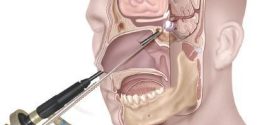The trend of warm lemon water has gained notoriety in recent times as one of the most prevalent “wellness hacks” on social media. There is little understanding about this simple “life hack” beyond the claims from various celebrities and fitness “influencers” saying this is the best way to start one’s morning. The claims for using lemon water in the morning …
Read More »Health
The Dopamine Overdose: How Modern Lifestyle is Rewiring Our Brains
If there were a chemical formula for happiness, dopamine would be at its core. Often called the “feel-good” neurotransmitter, dopamine drives motivation, reward, and pleasure, whether from a good meal, an achievement, or a meaningful relationship. From drug addictions to social media marathons, contemporary life has made dopamine a double-edged sword that both stimulates productivity and feeds addiction. Dopamine and …
Read More »How Obesity Can Have an Impact on Spine Health
The increase in obesity globally is a growing concern not only for doctors due to heart issues and diabetes, but it is also showing up in their office in a new way: bad backs. There are more younger and middle-aged individuals with chronic back pain, herniated discs, and early signs of degenerative changes to the spine. People generally do not …
Read More »How Sleep and Diet Can Be Factors That Prevent Breast Cancer
Small daily habits can make a big difference Breast cancer continues to be one of the most common cancers among Indian women, accounting for a large proportion of new cancer diagnoses each year. While genetic and hormonal factors play a role, researchers increasingly agree that lifestyle factors — particularly sleep and diet — have a significant impact on breast cancer …
Read More »Syrup or No Syrup? The New Guidelines Changing How Doctors Treat Cough in Children
For many years, whenever parents had a child with a cough, it was reflex to offer them a spoon of cough syrup. That is quickly changing. Throughout India, there has been a noticeable shift in the approach doctors take to prescribing cough syrups to children due to safety concerns and updated guidance. A Wake-Up Call from Recent Events Recent incidents …
Read More »Work Stress: A Toll on Mental Health
Dr. Murali Krishna, Visiting Consultant – Psychiatry & Counselling Services, Aster RV Hospital The constant pressure to succeed in today’s environment frequently obscures the true cost, which is our mental health. Long hours and an intense work ethic are acknowledged, but we hardly ever acknowledge the dangerous marathon we are running. For too many, this constant stress can cause horrible …
Read More »The Silent Half: Role of Men in IVF
Have you ever considered the significance of the male partner’s role in the IVF journey? Most conversations tend to revolve around women and their contribution, while the man’s part is often ignored. However, the fact is that this imbalance can take an emotional and physical toll on both partners. Research says that male factor infertility is responsible for about 50% …
Read More »Workplace Injuries: Prevention & Management
The Silent Crisis in India’s Workplaces Workplace injuries continue to be a significant cause of morbidity and economic loss in India and globally. Every year, thousands of Indian workers face injuries at their workplace, ranging from minor cuts to life-threatening trauma. On World Trauma Day, it’s vital to recognize that work environments—factories, construction sites, hospitals, and offices—carry inherent risks, but …
Read More »Breaking Stigma: Encouraging Open Conversation About Breast Health
Breast health often remains a silent topic in many Indian homes, a subject wrapped in hesitation and stigma. For caregivers and parents, this silence can be painful, as it may delay crucial awareness and early action that saves lives. Encouraging open conversation about breast health empowers families to break barriers, share knowledge, and protect the women they love. When conversations …
Read More »Tech Neck: How Smartphones Are Twisting Our Spines
In today’s digitally connected world, a new illness is slowly crawling up our spines. It is known as “tech neck,” and if you are one of the many people spending hours slumped over a laptop or phone, you are probably already a victim. Most individuals slouch their neck forwards while reading or writing text messages on a smartphone. They also …
Read More » Newspatrolling.com News cum Content Syndication Portal Online
Newspatrolling.com News cum Content Syndication Portal Online








